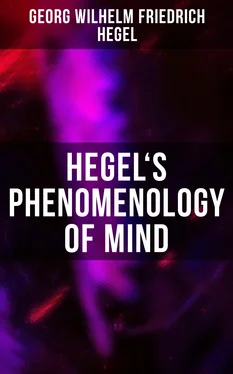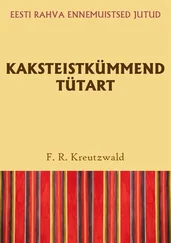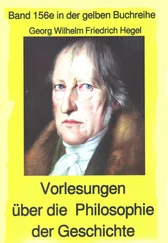To explain what has been said by examples let us take the proposition God is Being. The predicate is “being”: it has substantive significance, and thus absorbs the meaning of the subject within it. Being is meant to be here not predicate but the essential nature. Thereby, God seems to cease to be what he was when the proposition was put forward, viz. a fixed subject. Thinking [i.e. ordinary reflection], instead of getting any farther with the transition from subject to predicate, in reality finds its activity checked through the loss of the subject, and it is thrown back on the thought of the subject because it misses this subject. Or again, since the predicate has itself been pronounced to be a subject, to be the being, to be the essential reality, which exhausts the nature of the subject, thinking finds the subject directly present in the predicate too: and now, instead of having, in the predicate, gone into itself, and preserved the freedom characteristic of ratiocination, it is absorbed in the content all the while, or, at any rate is required to be so.
Similarly when it is said: “the real is the universal”, the real, qua subject, passes away in its predicate. The universal is not only meant to have the significance of a predicate, as if the proposition stated that the real is universal: the universal is meant to express the essential nature of the real. Thinking therefore loses that fixed objective basis which it had in the subject, just as much as in the predicate it is thrown back on the subject, and therein returns not into itself but into the subject underlying the content.
This unaccustomed restraint imposed upon thought is for the most part the cause of the complaints concerning the unintelligibility of philosophical writings, when otherwise the individual has in him the requisite mental cultivation for understanding them. In what has been said we see the reason for the specific charge often made against them, that a good deal has to be read repeatedly before it can be understood — an accusation which is meant to convey something improper in the extreme, and one which if granted to be sound admits of no further reply. It is obvious from the above what is the state of the case here. The philosophical proposition, being a proposition, calls up the accepted view of the usual relation of subject and predicate, and suggests the idea of the customary procedure which takes place in knowledge. Its philosophical content destroys this way of proceeding and the ordinary view taken of this process. The common view discovers that the statement is intended in another sense than it is thinking of, and this correction of its opinion compels knowledge to recur to the proposition and take it now in some other sense.
There is a difficulty which might well be avoided. It consists in mixing up the methods of procedure followed by speculation and ratiocination, when what is said of the subject has at one time the significance of its conceptual principle, and at another time the meaning of its predicate or accidental quality. The one mode of thinking invalidates the other; and only that philosophical exposition can manage to become plastic in character which resolutely sets aside and has nothing to do with the ordinary way of relating the parts of a proposition.
As a matter of fact, non-speculative thinking has its rights too, which are justifiable, but are disregarded in the speculative way of stating a proposition. Abolishing the form of the proposition must not take place only in an immediate manner, through the mere content of the proposition. On the contrary, we must give explicit expression to this cancelling process; it must be not only that internal restraining and confining of thought within its own substance; this turning of the conception back into itself has to be expressly brought out and stated. This process, which constitutes what formerly had to be accomplished by proof, is the internal dialectical movement of the proposition itself. This alone is the concrete speculative element, and only the explicit expression of this is a speculative systematic exposition. Qua proposition, the speculative aspect is merely the internal restriction of thought within its own substance where the return of the essential principle into itself is not yet brought out. Hence we often find philosophical expositions referring us to the inner intuition, and thus dispensing with the systematic statement of the dialectical movement of the proposition, which is what we wanted all the while. The proposition ought to express what the truth is: in its essential nature the truth is subject: being so, it is merely the dialectical movement, this self-producing course of activity, maintaining, its advance by returning back into itself. In the case of knowledge in other spheres this aspect of expressly stating the internal nature of the content is constituted by proof. When dialectic, however, has been separated from proof, the idea of philosophical demonstration as a matter of fact has vanished altogether.
On this point it may be mentioned that the dialectical process likewise consists of parts or elements which are propositions. The difficulty indicated seems therefore to recur continually, and seems to be a difficulty inherent in the nature of the case. This is like what happens in the ordinary process of proving anything; the grounds it makes use of need themselves to be based on other grounds again, and so on ad infinitum . This manner of furnishing grounds and conditions, however, concerns that type of proof from which the dialectical movement is distinct and hence belongs to the process of external knowledge. As to what this movement is, its element is the bare concept; this furnishes a content which is through and through subject impliciter and per se. There is to be found, therefore, no sort of content standing in a relation, as it were, to an underlying subject, and getting its significance by being attached to this as a predicate. The proposition as it appears is a mere empty form.
Apart from the sensuously apprehended or ideally presented ( vorgestellten ) self, it is in the main the mere name qua name which denotes the subject pure and simple, the empty unit without any conceptual character. For this reason it would e.g. be expedient to avoid the name “God”, because this word is not in its primary use a conception as well, but the special name of an underlying subject, its fixed resting-place; while, on the other hand, being or the one, singleness, subject, etc., themselves directly indicate conceptions. Furthermore, if speculative truths are stated about that subject [God], even then their content is devoid of the immanent notion, because that content is merely present in the form of a passive subject, and owing to this the speculative truths easily take on the character of mere edification. From this side, too, the obstacle, arising from the habit of putting the speculative predicate in the form of a proposition, instead of taking it as an inherent essential conception, is capable of being made greater or less by the mere way philosophical truths are put forward. Philosophical exposition, faithfully following its insight into the nature of speculative truth, must retain the dialectical form, and exclude everything which is not grasped conceptually and is conception.
Just as much as in the procedure of ratiocination, the study of philosophy finds obstruction, too, in the unreasoning conceit that builds itself on well-established truths, which the possessor considers he has no need to return upon and reconsider, but rather takes to be fundamental, and thinks he can by means thereof propound as well as decide and pass sentence. In this regard, it is especially needful to make once again a serious business of philosophy. In all spheres of science, art, skill, and handicraft it is never doubted that, in order to master them, a considerable amount of trouble must be spent in learning and in being trained. As regards philosophy, on the contrary, there seems still an assumption prevalent that, though every one with eyes and fingers is not on that account in a position to make shoes if he only has leather and a last, yet everybody understands how to philosophize straight away, and pass judgment on philosophy, simply because he possesses the criterion for doing so in his natural reason — as if he did not in the same way possess the standard for shoemaking too in his own foot. It seems as if the possession of philosophy lay just in the want of knowledge and study, as if philosophy left off where the latter began. It, is commonly held to be a formal kind of knowledge devoid of all substantial content. There is a general failure to perceive that, in the case of any knowledge, and any science, what is taken for truth, even as regards content, can only deserve the name of “truth” when philosophy has had a hand in its production. Let the other sciences try as much as they like to get along by ratiocination or raisonnement without philosophy, they are unable to keep alive without it, or to have any spiritual significance and truth in them.
Читать дальше












